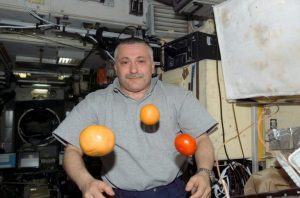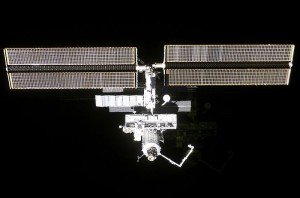Microbes in space have been of interest to the folks at various space agencies for as long as we’ve been sending people into space. Rampant mold growth on the Russian Space Station Mir was probably one of the reasons for the decision to “deorbit” the station (a fancy way of describing crashing into the ocean). …
Just a mini post here. Got pointed to this press release of possible interest on a collaboration to study microbes on the space station and on other spacecrafts using single cell approaches: Source: NASA, Bigelow Laboratory Study Microbes on Spacecrafts – Bigelow Laboratory for Ocean Sciences
The human microbiome and microbes in space are two of the sexiest topics in microbiology today. Together they have attracted the attention of the J. Craig Venter Institute. Hernan Lorenzi is leading a team to study how the composition of the human microbiome changes during long term space exploration. They will be analyzing the microbiome of …
It’s becoming increasingly well-established that microbes behave differently in microgravity than on Earth… that’s one of the justifications for our own Project MERCCURI. Some previous work has focused on the ability of microbes to survive higher-than-normal levels of antibiotics when grown in space, though the mechanism for this is not at all understood. This article …
As we have ben writing about here, we are planning to do some microbial sampling of the International Space Station as part of our Project MERCURRI. Thus I read with great interest the following headline this morning: ISS Supply Ship Opens Hatch After ‘Bacteria’ Delay | World | RIA Novosti. Uh oh. Seems that some mold …
Growing microbes in space sounds cool. Collecting microbes from sporting events is also cool (“excuse me, could I see that basketball after the game?”). Having fans collect samples with a chance that some of them will fly to the space station is a great way to engage people. Put them all together and you get …
(cross-posted from our static page on the project which will be updated as we move forward) Project MERCCURI is a collaboration of microBEnet with the Science Cheerleaders, Nanoracks, NASA, and SciStarter.com. There are three components to the project: 1) Collecting microbial swab samples from the International Space Station (ISS) and examining the microbial communities therein …
Interesting article via Mashable (from the Atlantic) in September bu How NASA Keeps Earth’s Germs Out of Space. It discusses how to keep the sites where space equipment is built clean and the general issue of planetary protection. Stay tuned for more posts about space as we are involved in a project to sample microbes on …

